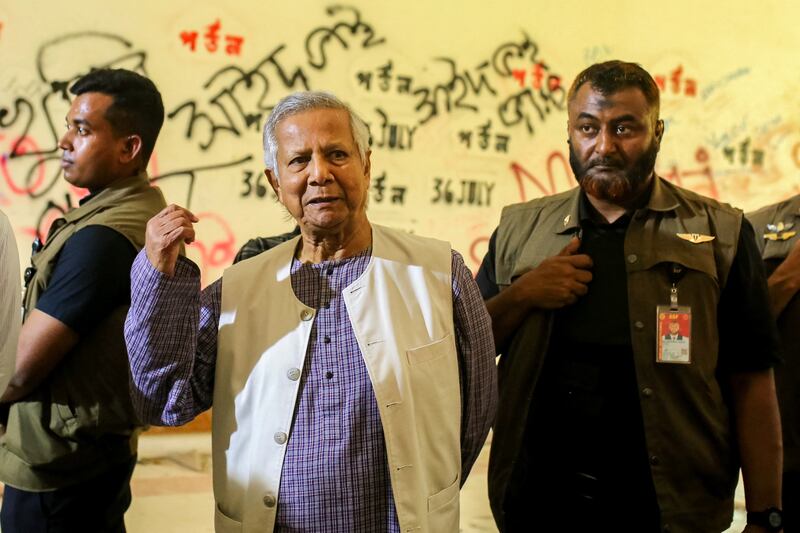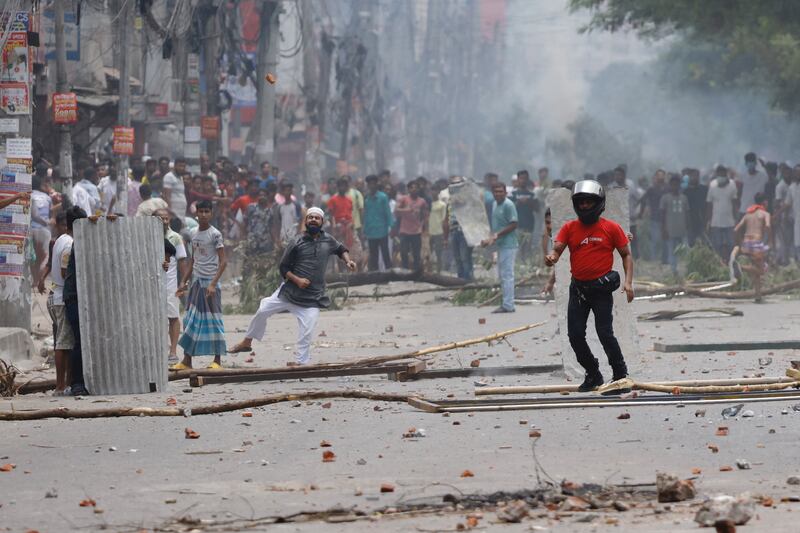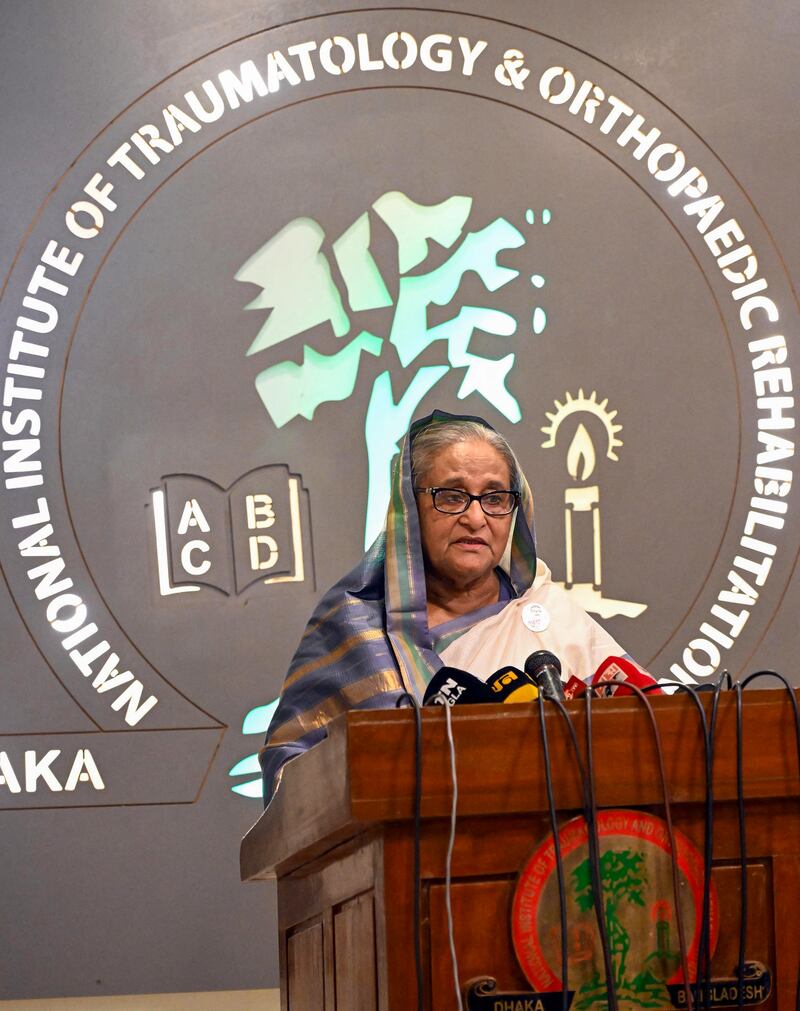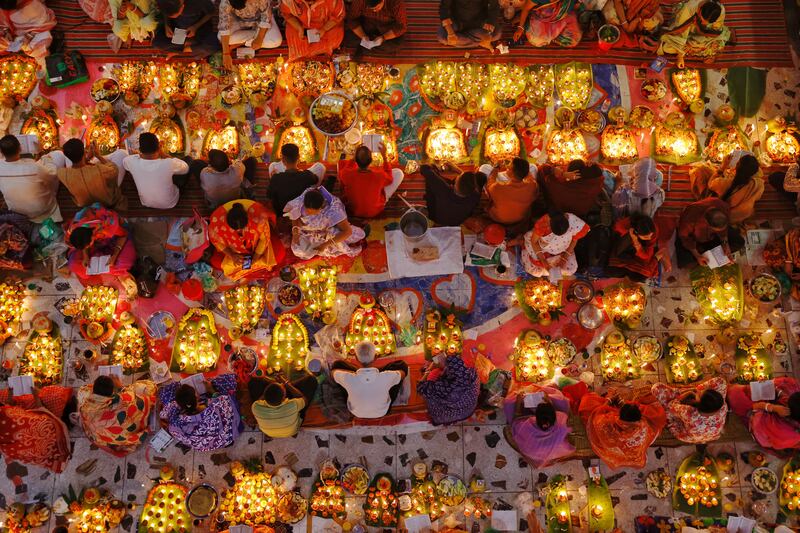After being in the political wilderness for 15 years, Mirza Fakhrul Islam Alamgir is a man in a hurry to see his political party, the largest one in Bangladesh, potentially return to power.
Fakhrul, Bangladesh Nationalist Party (BNP) secretary-general, wants the interim government that was installed after then-Prime Minister Sheikh Hasina fled the country to speed up the reforms required to hold free and fair elections.
Many political analysts say the BNP very likely will be elected. Before Hasina’s decade-and-a-half at the helm, Bangladesh twice alternated between voting for her Awami League and the BNP.
Hasina left for India after a student protest against job quotas became a mass movement demanding she resign because security forces fired on protesters. More than 800 people died during these movements.
After she ran away, an interim administration backed by university students who led the mass movement, civil society members and parties except the Awami League, is nearing 100 days at the helm of affairs in the South Asian nation.

The mandate of this administration led by 2006 Nobel Peace Prize winner Muhammad Yunus is to make the country and the state apparatus ready to hold an impartial and democratic general election.
Hasina and her Awami League had governed Bangladesh since 2009, winning four consecutive elections, including two boycotted by the BNP and its allies in 2014 and January 2024, and one widely criticized as rigged in 2018.
Many of Fakhrul's BNP colleagues are impatient and clamoring for swift elections, but he said three months is nearly not enough time to repair the damage done to state institutions during 15 years of Hasina's rule.
And repairing many of those institutions is an essential prerequisite for a truly democratic national election.
Fakhrul recently sat down with BenarNews for 30 minutes to discuss the future election and reasons for the continued lawlessness in Bangladesh, among other issues.
Excerpts from the interview, which has been edited for length and clarity:
BenarNews: What do you expect most from the interim government and has it performed to your satisfaction?
Mirza Fakhrul Islam Alamgir: The biggest expectation is that it will complete the [necessary] reforms expeditiously and hold an impartial, free election acceptable to all.
During the last 15 years, Hasina and her party destroyed Bangladesh politically, economically and socially.
Considering all this, the interim government has moved to constitute an Election Commission, formed a search committee and sought names.
They have started the work. That work will be complete soon.

BN: You have said many times that the BNP wants to give the interim government "logical time." How do you define this?
MFIA: By "logical time," I mean the time by when the election commission can become a completely impartial body so that an unhindered, fair and impartial election can be held.
BN: You say the constitution needs amending. Why?
MFIA: The Awami League government destroyed the [original] 1972 constitution and made it a charter of fascism. So its reform is a crying need. Otherwise, nothing can be fixed.
BN: The BNP has been repeating that this interim government should not fail. Why?
MFIA: The consequences [of it failing] may be dangerous. The [Awami League] fascists may come back. Anarchy may follow … which is not desirable for anyone.
BN: After Hasina fled, street protests have been held over trifling issues, officials were forced to resign and some beaten up. Why is there still so much lawlessness?
MFIA: That is because Bangladesh has not experienced true democratic practices. They did not dare to speak out. Now they can, and are doing so freely.
Additionally, Awami League supporters are causing mischief on the online instructions from India by Hasina.

BN: There is uproar in the international media that minority communities such as Hindus were attacked after Hasina fell and continue to be under threat in this Muslim-majority country. Is this happening, and if so, why?
MFIA: Let me make this clear:
In three districts in southeastern Bangladesh, Hindu idols were vandalized. It was proven that the Awami League’s student wing was behind the attacks, but the government took no action.
And there was no uproar in the international media.
There were some problems immediately after the political change. But they were not communal. They were political.
Take the case of Hasina. She is a Muslim and she fled. The house of Hasina’s Muslim adviser was looted.
Why? They were Awami Leaguers. People have massive hate for the Awami League.
The Awami League wants to make it an issue that the BNP or Bangladesh is persecuting minorities.

BN: Similarly, the Awami League and others allege that militancy will return if the BNP comes to power. What's your response?
MFIA: We have not supported militancy. We will not support militancy – zero tolerance.
The Awami League manufactures these stories. Yes, you can say that there is a move toward fundamentalism. And the Awami League is responsible for that.
They blocked the path of democracy, and when you do that, fundamentalism is sure to flourish.
We were the first government to arrest all militants.
BN: As you wait for the election to be announced, what advice do you have for political parties including BNP?
MFIA: I have only one. All of us must be patriots, must work for the people's welfare and not abuse power if in government.
We believe the BNP will in no way repeat the Awami League’s mistakes. If we do, we will have to face the same consequences it did.
